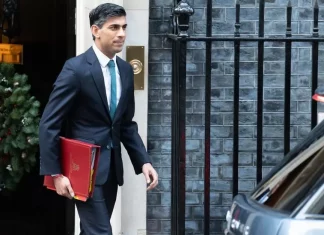In labeling NATO a dangerous “anacronym” the general has chosen the perfect title for his timely essay pointing out that the North Atlantic Treaty Organization has morphed from a strictly defensive pact, governed by tightly worded treaty terms, into an organization that, perhaps unwittingly, is destabilizing Europe and possibly the entire world. Thus, the NATO “acronym” has become an “anacronym”; i.e., something that bears no resemblance to its original meaning.
General Badger is respectful of NATO’s accomplishments in contributing to a peaceful end to the Cold War and cautiously calls for it to return to its original purpose as a strictly defensive alliance. His warning comes none too soon. Expanding the alliance’s security guarantee to most of the former Soviet Union’s satellite nations just may prove to be the greatest diplomatic and strategic blunder of the post Cold War era. The Soviet Union’s collapse should have heralded a new era of peace in Europe. NATO’s job was done. The new Russia was no longer a military threat to Western Europe. The US could have gone home and the rest of Europe could have gone about its business of scaling back military expenditures and opening the entire continent to free trade, peace, and ever greater prosperity.
But just because it had thrown off its expansionist ideology did not mean that Russia ceased to have legitimate national security interests, namely, insuring that its “near abroad” did not pose a military threat. Russia’s western borders are practically indefensible. Thus, Russia has always desired non-threatening western neighbors just as England had desired that no powerful country control the cross channel Low Countries. This should have been perfectly understandable to any statesman and diplomat worthy of the name. Yet NATO officials have acted as if there are no legitimate Russian security interests and, instead, have adopted a “come one, come all” approach to expanding the alliance. The potential benefit to long time members, who looked forward to reducing military tensions and expenses, have vanished. A golden opportunity has been squandered, for reasons best left to others to fathom, for I cannot.
Is real peace in Europe possible, or will the West allow NATO bureaucrats to pursue their own mysterious agenda leading God knows where? Let us pray for the former.
Patrick Barron
Patrick Barron is an American economist, with dozens of important essays disseminated worldwide, He has taught an introductory course in Austrian economics for several years at the University of Iowa. He has also taught at the Graduate School of Banking at the University of Wisconsin for over twenty-five years and has delivered many presentations at the European Parliament.
NATO, a Dangerous Anacronym
Treaties are tricky things, almost since the beginning of time people have tried to protect themselves with some kind of arrangement, military, economic, tactical or strategic. They come in many guises. They can be formal, informal, secret or even implied in the shape of an entente. The inherent danger is that they are a double-edged sword. Whilst they might protect they can easily provoke. History is not short of examples, perhaps the most engagingly fascinating are the machinations at the Congress of Vienna, sometimes known as the Metternich Conference which became a parlour board game with real countries and European leaders. All the more deadly if one accepts von Clausewitz’s dictum ‘war is an extension of diplomacy by other means’.
To revise for a moment, Austria-Hungary wanted to maintain its post-Waterloo position as a first-class power, Prussia sought control of the Germanic States, still away in the future but the primary goal, Britain her long term aim of a European balance of power, France, keen for an early return to the top table, Russia, as always security to the west with buffer states.
So much for the history lesson, well revision more appropriately.
Yet the expectation under any of these arrangements is the co-signatory will come to the aid of the injured party. The injured party being the country under immediate threat. Most treaties are of a defensive hue. They are of mutual benefit. Historically it is rare to commit to the military aid of any ally with an overtly aggressive agenda. Such carte blanche must inevitably end in tears, it could be argued that the axis alliance in WWII, and the Soviet/Nazi non-aggression pact, were such but perhaps more immediately tactically expedient agreements than long-term strategic treaties. The Warsaw Pact was another replay of Russia’s long-term geopolitical strategy to protect itself from invasion from the west by a forward buffer state defence policy. Any serious study of Russian history explains the soundness of such a policy, regardless of any national or political view of Central or Eastern European perspectives. Pragmatic diplomacy is to see the opposing point of view, it is of course not necessary to agree or even appease it, but it is dangerous to misunderstand it.
This brings us to NATO, a treaty that history, up to now will be regarded as enormously successful. Two huge, heavily armed power blocks, politically and culturally as divided as they could be, arguably more so than the pre-Napoleonic era, and indisputably the pre-1914 era where monarchical ties of marriage were the building blocks of European power and alliances. The conflagration of 1914 was avoided in over 50 years of a global ‘Mexican stand off’. This period of enduring peace can be attributed to American military and economic commitment to Europe and it would be churlish not to concede significant real acceptance of real politik by the Soviet Union.
So far then, so good. However, there seems to be a reluctance to accept the change in game plan. The Soviet Union is no more. Old members of the Warsaw Pact are now members of the European Union, incidentally a customs union not a military alliance in the way of NATO. This important point is often missed by politicians and journalists alike. It is an extremely dangerous error to assume the two things are the same, and they do.
President Eisenhower first analysed the great danger to the United States when he realised the military industrial complex was metamorphosing into an end and not a means. President de Gaulle perhaps recognised it too when he pulled France out of the integrated command structure. The British, militarily totally Atlantasist and understandably so have always been slow to accept there can be any flaw in overwhelming American military might and a forward defence policy.
There is an obvious threat now although it comes from within, NATO has become expansionist. Not only has membership moved to the borders of the Russian Federation, thereby occupying the traditional Russian buffer state defence concept of historical standing it is nakedly aggressive in some of its military adventures. It is difficult to understand how the destabilising of Lybia, or boots on the ground Afghanistan, or training exercises in the Eastern Ukraine can be in the spirit of the treaty.For the last 70 years, Western Europe has accepted almost without question America is fundamentally a force for good, yes mistakes have been made but taking a historically broad view. This is now being challenged not just by the international left, always hostile to the USA, but true friends of America and the classical liberal right in non-military American institutions. Military adventurism is expensive and dangerous. Major wars are as likely to be triggered by accident as design, sabre rattling deep in Russia’s backyard is downright irresponsible.
NATO is over 60 years old, it’s weaponry is constantly upgraded but not its raison d’être . The treaty is outdated, but worse is being hijacked by that military industrial complex that Eisenhower feared. When the NATO was conceived a very significant number of politicians had military experience usually from the Great War but some from the second. Few have military experience today, paradoxically a reflection of NATO’s success. One is tempted to imagine them in uniform and subject to the disciplines of the armed forces, indeed, how many of them would make even lance corporal if they could get in at all. But the point to ponder is that when the chips are down a military alliance means potentially our sons and daughters have to go to war. They will be killed, maimed, emotionally scarred, to what end? Unless the nation state is genuinely threatened, people, cultures, families at risk is war justified? History is littered with wars which in hindsight could have been avoided or at least certainly weren’t worth expending blood and treasure. Look into your hearts, is your son’s life worth political realignment in the Western Ukraine? Moreover, remember how many modern wars have started because an antagonist did not believe a larger war would result in territorial expansion. To be a deterrent, a defence treaty must be viable, perhaps, more importantly, believable. Inevitable political appeasement in the Ukraine and Crimea desperately weakens the protection of genuine NATO members especially in the Baltic, the USA and the EU must resist posturing, sabre rattling and poking The Bear with a stick through the bars, lest the door swings open and lets him out in a vengeful mood.
Let us, therefore, revisit this noble charter and turn it from a sword back into a shield, its original purpose.






